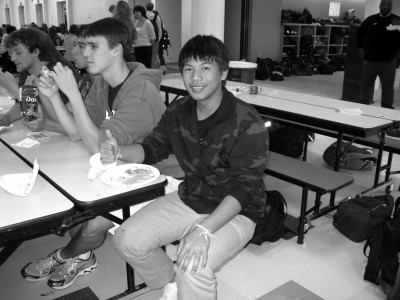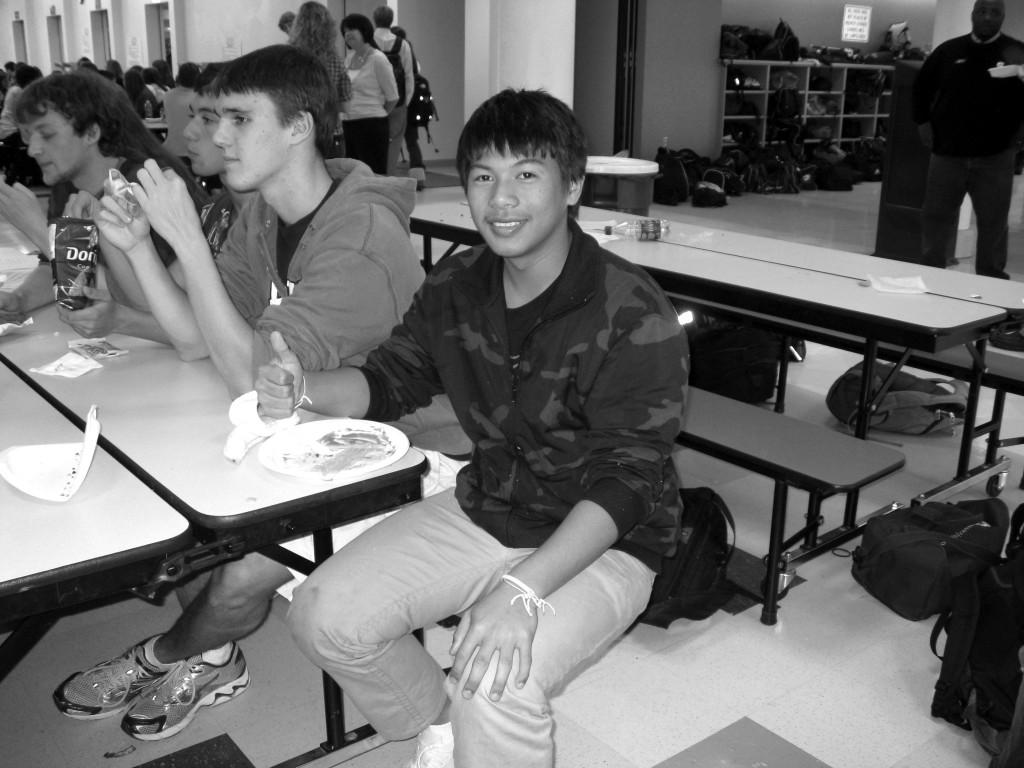Kate McNee ’11
Staff Writer

Language is a societal bridge, the basis of most communication, between reading, writing and speaking. Without being able to comfortably speak the language that is spoken around you, life, naturally, is very different.
This is what four Staples foreign exchange students, Krittee “Narn” Chaisawat, from Thailand, Leonie Sürth, from Germany, Anna Lusia “Lulu” Santana, from Brazil, and Roman Smolyar, from Ukraine, have learned in these first few weeks of school, as their ability to speak English is rapidly improving.
“Speaking English all the time, it’s just a really big change,” Santana said.
Learning and immersing themselves in another language is so important to these students that it is, in fact, much of the reason why they desired to come to America. Along with coming to “meet people,” Smolyar said that he came to “become fluent in English.”
Sürth also said her motive in coming was to “improve her language skills.”
But, as these students expected, this change does involve many challenges. When asked about whether it is hard for him to talk to people and make friends when he is not comfortable speaking English, Chaisawat said that it was difficult.
He also said that it’s “very hard” approaching a group of people speaking fast and informal English, and trying to participate in the conversation.
In the students’ classes it is no easier. Although Chaisawat says that his translator helps, he said that it is difficult learning many of the subjects that are taught in English. Smolyar said that reading in English is the hardest for him.
Also, something that many probably do not consider is the toll the constant translating and attempting to understand takes on the students. Dissecting every phrase, every sentence requires a massive amount of focus, something that they surely were not used to in their native country. Not having to worry about being understood is a luxury that most people don’t remember to appreciate.
“I get really big headaches when I’m trying all day to understand,” Santana said.
Similarly, Smolyar complained about getting headaches at night.
Some of the students don’t even have anybody to talk to in their native language. Although Roman says that he does have someone to talk to in his native language, Russian, Chaisawat says that he doesn’t know anyone who speaks his language, so he has to speak English all day, every day. Both he and Santana say that this causes them to miss their language at times.
But, although it is hard now, the students have not lost hope.
Santana, Chaisawat and Smolyar all take ESOL, in which they are helped with English and helped to understand the American culture.
They are also, of course, learning the language by talking and reading.
Sürth says that she has “improved a lot since she came,” and Chaisawat said that he feels confident that he will be able to speak English fluently by the end of they year.
“I just have to try and talk more and not be shy,” Chaisawat said.
In the mean time, they are enjoying the humorous experiences they are encountering as they continue to learn the English language.
“One time I was in Ben & Jerry’s, and said I wanted ‘two bowls,’ when I meant to say ‘two scoops.’ The guy working there gave me this really weird look and was like ‘what,’” Santana recounts, smiling.













































